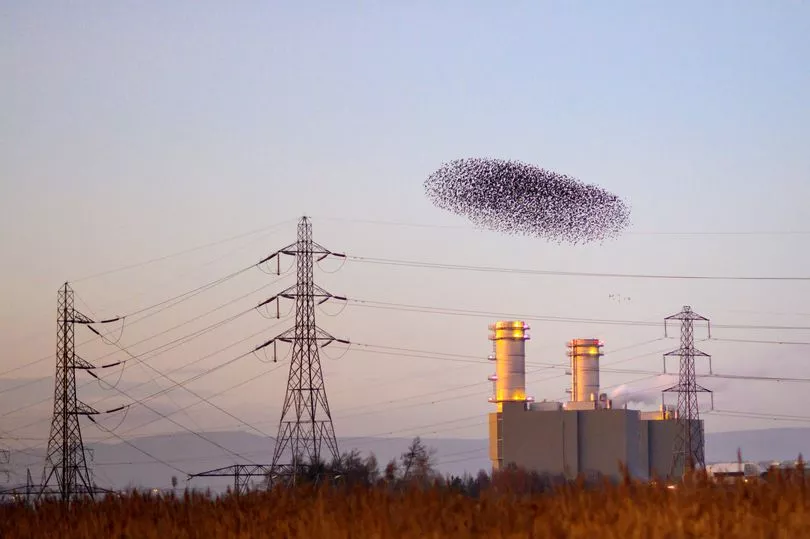The Welsh Government has committed to generating as much renewable electricity as we consume by 2035. That is a massive change in 12 years and we aren’t on target.
We will need to generate multiples of the amount we generate now. That means a lot of solar farms, onshore and offshore wind farms, but also an electrical grid capable of connecting and carrying the electricity. The next decade is going to be a huge transformation as we electrify much of our demand and move to almost all electricity generated from renewables. We probably need to treble current renewable generation.
On that subject, the National Infrastructure Commission Wales (NICW) Renewable Energy Report has just been released. You can see a summary of the main headlines from my colleague, Ffion, here. There are some good points, for example, around the failure to ensure areas we have designated for wind farms have the required electrical grid connections leading to slower deployment than hoped for. I wanted to pick out the major areas for me
The Grid
There is a recommendation that the way Ofgem plans and delivers grid access for renewable energy. This echoes both UK Labour and Conservative commitments already made in their conferences from the Prime Minister and shadow chancellor. The importance of this cannot be overemphasised.
There is a huge amount of renewable energy, housing and other vital development being held up by the incredibly slow upgrading of the grid. We need to be faster, but, as the report says, we need to be smarter. There are plenty of clever ways we can use our grid smartly and reduce peak demands. For example, we will all soon be paying variable prices for electricity so that we reduce electricity use at peak times.
The whole sector needs to be hugely more open to competition and innovation. There are regulatory changes that should improve things, but it is very slow. It will be interesting to see what Welsh Government, as well as the next UK Government does about this .
Planning for Success
The planning process is an acknowledged problem for infrastructure across the UK. There is a recommendation to extend permitted development (where you don’t need planning permission) from the large scale renewable energy deployment to the retrofit of heat pumps. The report shows that applications for smaller renewable energy installations are averaging 59 weeks!
You may not realise that one of the biggest blockers to housing, renewable energy and other development is the lack of resource in planning departments. We need more resource or a simpler process. Probably the most exciting recommendation in the report is that of “positive silence”. This would mean that if a planning application for renewable energy has not been determined within a defined time that the application should default to being approved. Subject to certain protections, I like the idea. It will be interesting to see what the government say.
Community involvement
Community involvement is a major theme in the report. This is important as these technologies are going to benefit us all, but it will only be local people that suffer the visual impact, noise, etc. With a power station, there are at least lots of well-paid jobs that come with it, but that isn’t the case with a big wind farm.
The NICW proposes having to offer 10% of any project to the local community at a commercial value. I like the idea because it will engage people, I am even supportive of compensation, but we need to be careful about implying there will be loads of money.
Show me the money
One area where I think there is a fundamental misunderstanding in the NICW, and more broadly, is that there is loads of money in renewable energy and we need to share the goodies around. Energy is going to get more and more competitive and it is for this reason I am so excited; it is going to unleash huge economic growth and reduce poverty.
The problem is the margins will be smaller, it will not be like the oil/gas windfalls. We have seen this error in council energy companies like Bristol Energy and Robin Hood Energy in Nottingham, which lost money thinking they could share the big profits of energy companies.
There is also a lot of robbing Peter to pay Paul in policy discussions. For example, the NICW suggests Wales gets the revenue that the Crown Estate receives from offshore windfarms. That is fine, but it just means we are taking money from the UK Government, who will have to raise taxes elsewhere or cut services
The Crown Estate receiving revenue from renewable energy deployment is circular in the first place; we all pay bigger energy bills so that the government can receive a payment from the energy generator (the idea in the report of a sovereign wealth fund, when we have the biggest peacetime debt, is strange).
The report makes lots of useful suggestions to improve our fast we can decarbonise the country and create the wealth so desperately needed. The irony is that much of this will require the resources and a responsiveness from government and regulators, the lack of which has got us where we are.


Leave a Reply